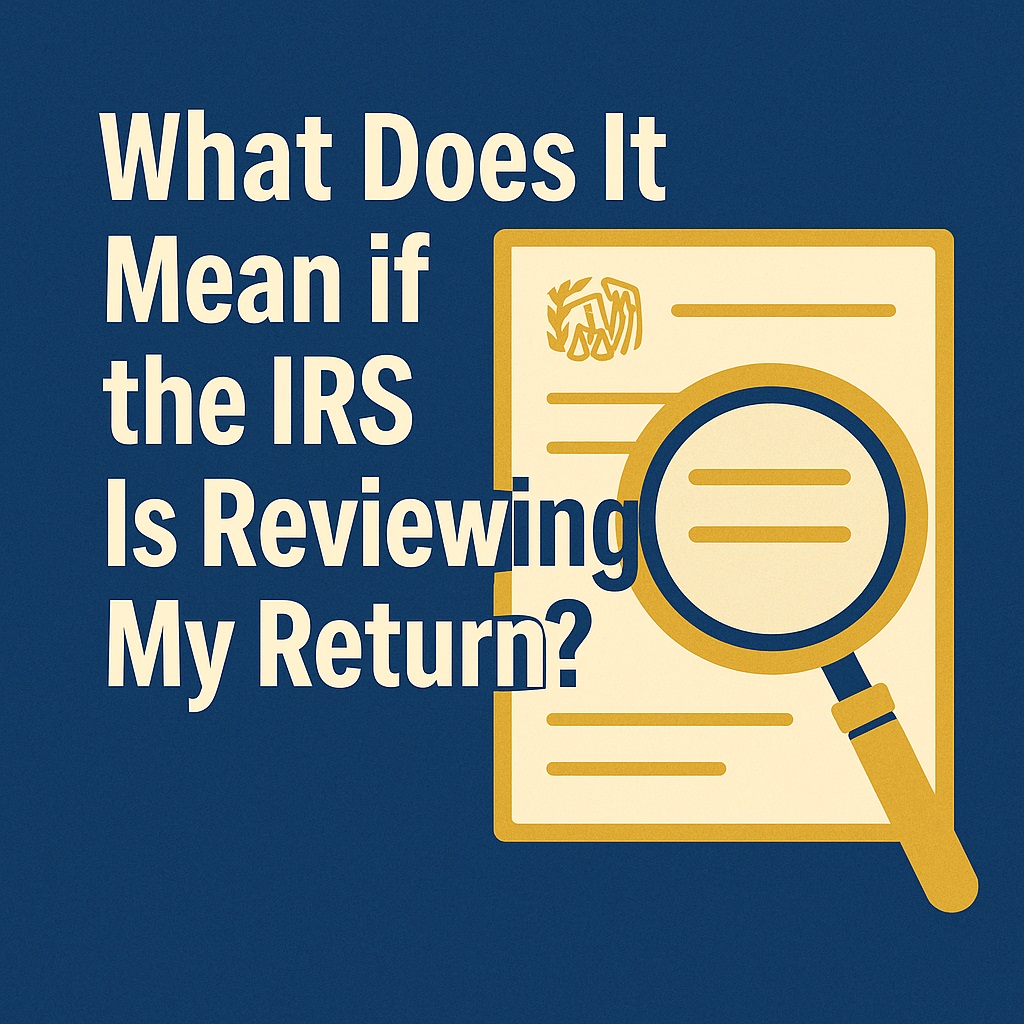When you see the message that the IRS is reviewing your tax return, it can cause anxiety and confusion. But what does this review actually mean? Understanding the IRS tax return review process can help you navigate this period with confidence and reduce unnecessary worry.

Why Is the IRS Reviewing My Return?
The IRS uses advanced computerized systems, like the Discriminant Function System (DIF) and Unreported Income DIF (UIDIF) scores, to evaluate tax returns for potential errors or inconsistencies. Returns with higher risk scores or unusual activity are flagged for review. Common triggers include:
- Large changes in income compared to previous years
- Unusually high deductions or business expenses
- Missing or inconsistent forms (e.g., 1099s, W-2s)
- Random selection for routine compliance checks
Receiving a review notice does NOT automatically mean you made a mistake or are being audited. Many returns are reviewed simply as a precaution.
What Happens During the IRS Review?
When your return is under review, the IRS examines key areas such as income, tax withholdings, deductions, and credits claimed. They cross-check your reported figures with information from employers, banks, and other third parties to ensure accuracy.
If your return is selected, you’ll typically receive a CP05 notice (or similar), informing you that your return is being reviewed. Usually, no immediate action is required unless the IRS contacts you asking for more documentation or clarification.
Will My Refund Be Delayed?
Yes, while your return is under review, any expected refund will be held until the IRS completes their checks. Review times vary but often last up to 45 to 60 days. If you haven’t heard back after this period, it’s advisable to contact the IRS for an update.
Possible Outcomes of the Review
- No Change:IRS accepts your return as filed, and your refund is issued.
- Adjustments:IRS may make corrections leading to a higher or lower tax liability or refund.
- Request for More Info:They might ask for additional documents.
- Audit Referral:In rare cases, the review may lead to a full audit.
What Should You Do?
- Keep copies of your tax return and all supporting documents.
- Respond promptly if the IRS requests additional information.
- Pay any taxes owed by the due date to avoid penalties and interest.
- Consider seeking help from a tax professional if the process becomes complex.
IRS review of your tax return is a common part of ensuring tax compliance and accuracy. While it may delay your refund, it does not imply wrongdoing. Staying informed and prepared will help you through the review process smoothly.
